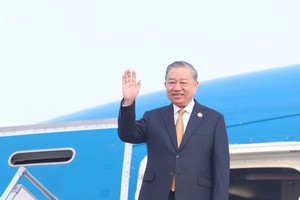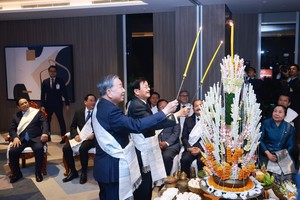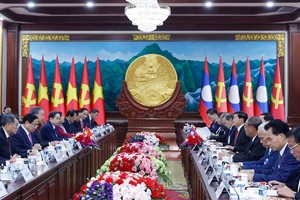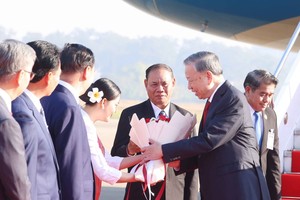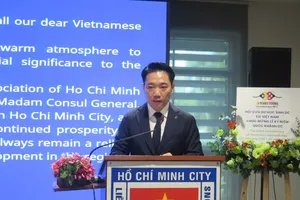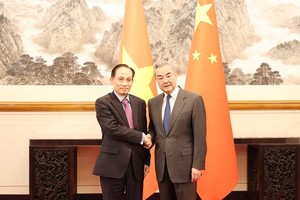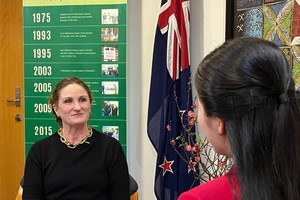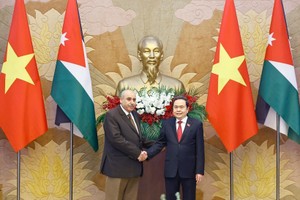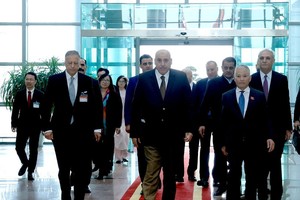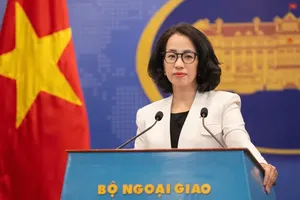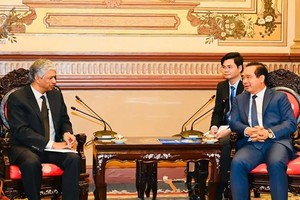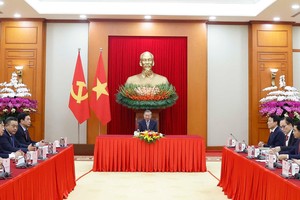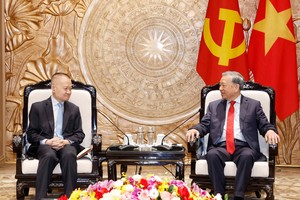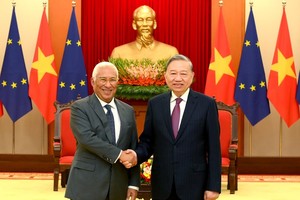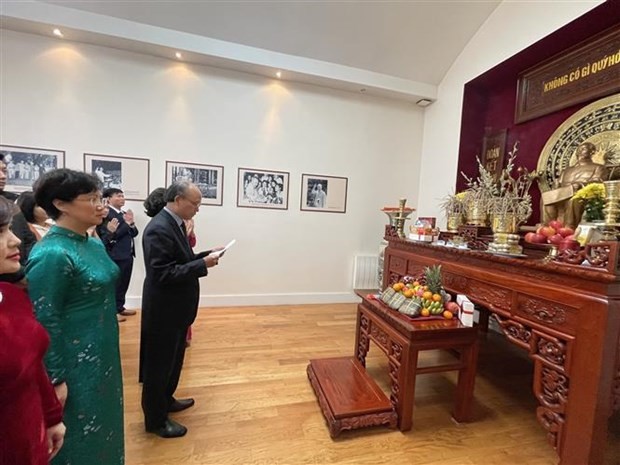 |
At the ceremony. (Photo: VNA) |
Ambassador to France Dinh Toan Thang and staff of the embassy and Vietnamese representative offices in the European country offered incense in memory of the Hung Kings and late President Ho Chi Minh.
According to the diplomat, 2023 is a year with many important milestones, including the commemoration of the 50th anniversary of the Paris Agreement on ending the war and restoring peace in Vietnam, the 50th founding anniversary of diplomatic ties between Vietnam and France and the 10th anniversary of their strategic partnership.
The year also witnesses the start of a new phass of cooperation with bilateral and multilateral partners of Vietnam, namely the United Nations Educational, Scientific and Cultural Organisation (UNESCO), the International Organisation of La Francophonie (OIF) and Organisation for Economic Cooperation and Development (OECD), Thang noted. He said Vietnamese representative offices in France will continue to uphold patriotism, self-reliance, and solidarity to fulfill tasks assigned by the Party and State.
Legend has it that Lac Long Quan (real name Sung Lam, son of Kinh Duong Vuong and Than Long Nu) married Au Co (the fairy daughter of De Lai). Au Co then gave birth to a pouch filled with one hundred eggs, which hatched into a hundred sons. However, soon thereafter, Lac Long Quan and Au Co separated.
Lac Long Quan went to the coast with 50 children, while Au Co went to the highlands with the rest. Their eldest son was made king, who named the country Van Lang and set up the capital in Phong Chau (modern-day Viet Tri city in Phu Tho province), beginning the 18 reigns of the Hung Kings. The kings chose Nghia Linh Mountain, the highest in the region, to perform rituals devoted to rice and sun deities to pray for bumper crops.
To honour their great contributions, a complex of temples dedicated to them was built on Nghia Linh Mountain, and the 10th day of the third lunar month serves as the national commemorative anniversary for the kings. The worship of the Hung Kings, closely related to the ancestral worship traditions of most Vietnamese families, was recognised as part of the Intangible Cultural Heritage of Humanity by UNESCO in 2012.




